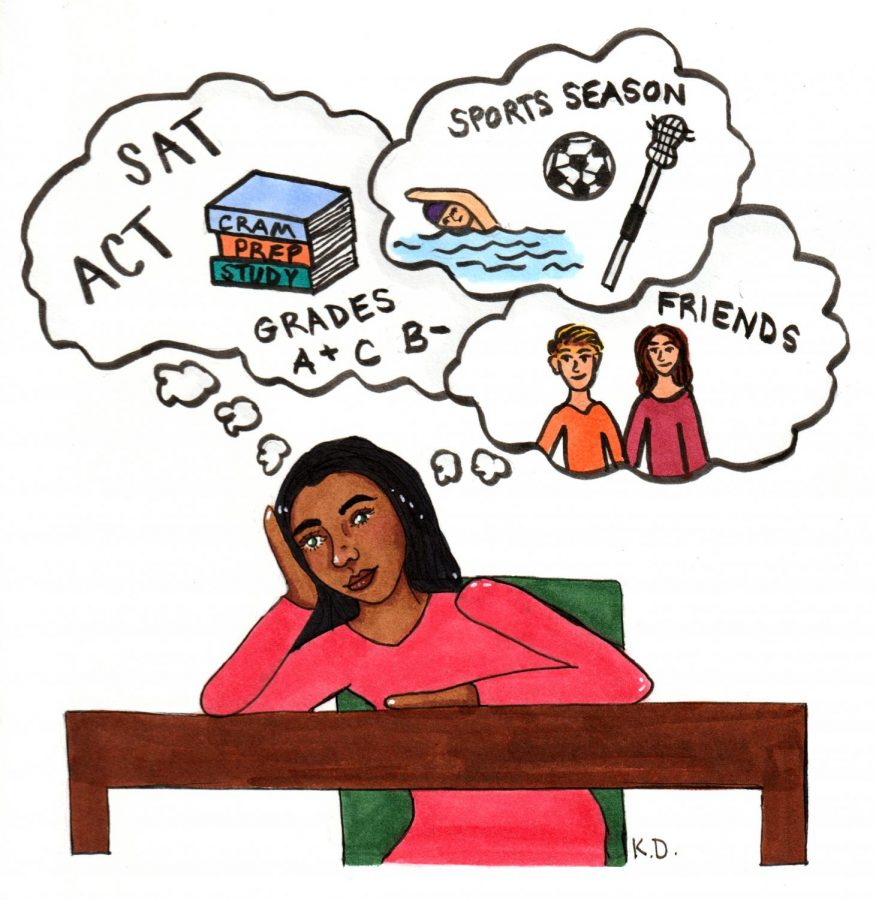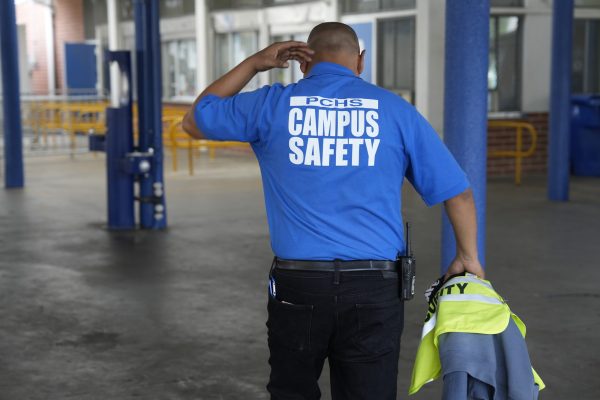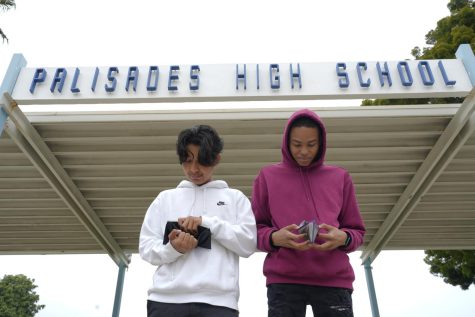Juniors Affected By Coronavirus
For the class of 2021, this is arguably the most important semester of high school. Yet most expectations have been shattered or drastically altered, and any existing plans have been reassessed. As members of the junior class prepare to apply for college and decide how they want to spend the beginning of their adulthood, they have been burdened with the additional pressures of the COVID-19 crisis.
At a time when college visits and job internships are usually encouraged, juniors are flying blind. For those who are looking to continue their education at a college or university, the usual benchmarks for college admissions have all been disrupted. Essential criteria such as standardized testing, extracurricular activities and GPAs have all been affected as the COVID-19 crisis continues. The lack of structure in an already difficult process has greatly increased the stress of many juniors, including Samantha Yawitz, who finds that “during such an uncertain time, [she is] left without any traditional guidance.” As a result, she has shifted her priorities and reimagined certain aspects of the college application process.
In an attempt to adapt to the situation, many universities have altered their entrance standards, some choosing to become test optional and others opting to forgo their volunteer hour requirements. They have been urging students to remain focused on the situation at hand and to try their best given the current circumstances. Because of this, college counsellors and admissions officers are predicting a change in how applications are reviewed due to the lack of consistency in students’ grades and activities. While many events and test dates have been rescheduled, the future still remains uncertain in terms of college admissions.
For many juniors with difficult course loads, their preexisting anxieties have only been amplified by the transition to eLearning. Many juniors are having trouble managing school work online as they find that teachers are assigning an impossible amount of work or that learning online isn’t effective for them.
Due to the revised bell schedule, which shortened classes by 40 minutes, junior Sarah Kageyama has experienced a significant increase in schoolwork. Her teachers have been assigning “the same amount of work they would for a regular class period, except there is less time to complete it.”
Through all of this, students are still managing to participate in their extracurricular activities by shifting them online and using video conference calls to communicate. Club meetings are taking place virtually, and cabinet members are converting their plans to accommodate students at home. Others are taking initiatives to help those who lost their jobs or have no access to educational services. Kageyama has been volunteering with a tutoring service founded by a fellow junior to “teach classes to kids whose schools have stopped offering curriculum,” and she has been able to help students explore their interests on an individual level.
On the other hand, those involved in sports have not been able to continue with their seasons. For some, such cancellations may mean that all of their countless hours of work will go to waste, and for others it means missing scholarship opportunities. Elite athletes who have their futures riding on a chance to pursue their sport at a collegiate or higher level might miss the opportunity to get recruited.
Students say they are losing time to forge valuable social connections, especially during school. Interacting with other students every day fosters emotional connections and social growth. Especially for teenagers, having a strong support system has been proven necessary and healthy for mental stability. The lack of such interactions on a regular basis could take a toll on teenagers in a universal sense, increasing stressors that may trigger anxiety or other mental health issues.
For now, there is no definitive answer for the appropriate next steps to take to determine the future of the junior class, as physical safety is now the priority. While it may be frustrating to be told just to sit at home and to wait it out, adapting and trusting the process is key.

Lily Gong is a current senior and is highly interested in computer science and passionate about empowering women and minorities in STEM. She is actively...











